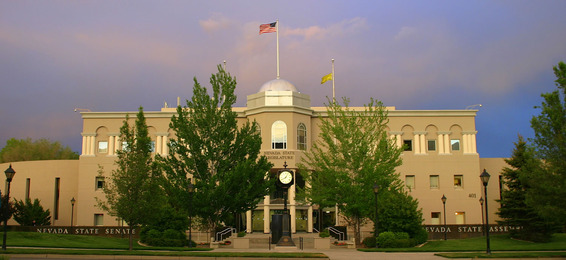
I love Tom Mitchell. One of the sharpest conservative political minds in Nevada.
And in his online column Friday Tom inked some thoughtful thoughts on the ongoing debate over Question 3, the Energy Choice Initiative, which will be on the ballot in November…
“Let’s get one thing straight, the Energy Choice Initiative — Question 3 — on the November ballot is not deregulation of the electricity market. It would replace Nevada’s regulated energy monopoly with a regulated competitive energy market.
“It would amend the Constitution to require lawmakers by July 1, 2023, to ‘establish an open, competitive retail electric market, to ensure that protections are established that entitle customers to safe, reliable, and competitively priced electricity…’ This would include provisions to reduce costs to customers, ensure reliable service and prevent unfair practices.”
Mr. Mitchell went on to note that while the “No on 3” propagandists claim passage means NV Energy would have to sell off generation systems at a loss that would have to be made up by consumers, a report by the Garrett Group “said such a sell off should be profitable, and, when coupled with the recent tax law changes, should cause power bills to drop by $11.16 a month.”
Mr. Mitchell went on to note that “The Guinn Center reported that some states that have instituted competitive power markets have seen prices rise due to fluctuations in fuel costs and other factors (my emphasis).”
In other words, not simply because they moved to break up their energy monopolies, but because fuel costs have gone up – you know, just like how gas prices for your car have gone up in recent months.
In addition, Mr. Mitchell points to a 2015 study finding that “From 1997 to 2014 states that had adopted customer choice for power saw inflation-adjusted residential rates fell 5.2 percent, while monopoly states saw those rates rise 3.9 percent.”
So, who ya gonna believe? Tough for anyone not extremely well-versed in energy issues.
But considering the outlandish over-the-top, Armageddon-like, sky-is-falling rhetoric by the “No” side, you have to wonder what exactly it is they’re trying to hide from voters.
In watching their commercials – one of which would have you believe that a firefighter is an energy expert whose advice should be taken with all the unquestioned reverence of a papal edict – any thinking person can’t help but think they’re trying to fool voters through fear-and-smear tactics rather than argue the actual merits of the proposal.
Mr. Mitchell concludes by making the REAL point of this entire debate: That the initiative doesn’t enshrine the details of the de-monopolized, competitive market system in the Constitution, but rather only forces the Legislature to do its job and take action on this issue which it’s failed to take over the last few legislative sessions.
Make no mistake: If ECI passes it will be up to legislators to design our new de-monopolized system for consumer choice. They’ll have the ability to craft a system that avoids the mistakes made by goofy states like California and instead develop a system in Nevada that mirrors the successes of states such as Texas.
Much like gaming regulation and marijuana regulation, our legislators will have the opportunity to learn from past mistakes in other states and create the national “gold standard” for energy choice.
“So,” concludes Mr. Mitchell, “the question for voters this fall may not be whether Question 3 is good or bad but whether we trust our lawmakers to be able to learn from the experiences of other states and write regulations that will be beneficial.”
Indeed. And there is certainly legitimate reason for concern that the yahoos we’ve elected in the past who have punted on this issue over and over again aren’t up to the task.
But that nevertheless goes to another point which undercuts the “No on 3” argument that this measure shouldn’t be in the Constitution; that if mistakes are made it would take too long to change.
The fact is Question 3 means the Nevada Legislature will be in charge of developing and implementing the changes. Which means whatever the Legislature screws up legislatively can be quickly fixed legislatively.
Which means, as Mr. Mitchell observes, the answer isn’t so much to vote “No on 3” but to elect better, more intelligent legislators who will not only do their job, but do it right.
Couldn’t have said it better myself.


Facebook
Twitter
Pinterest
RSS